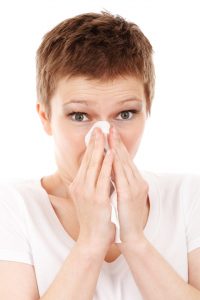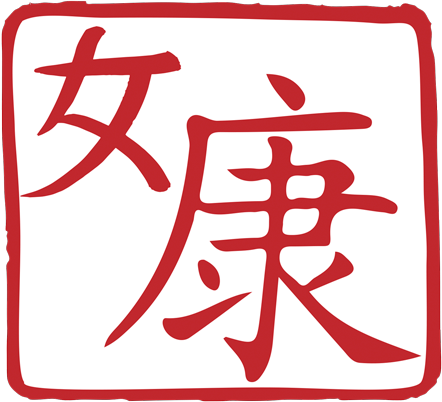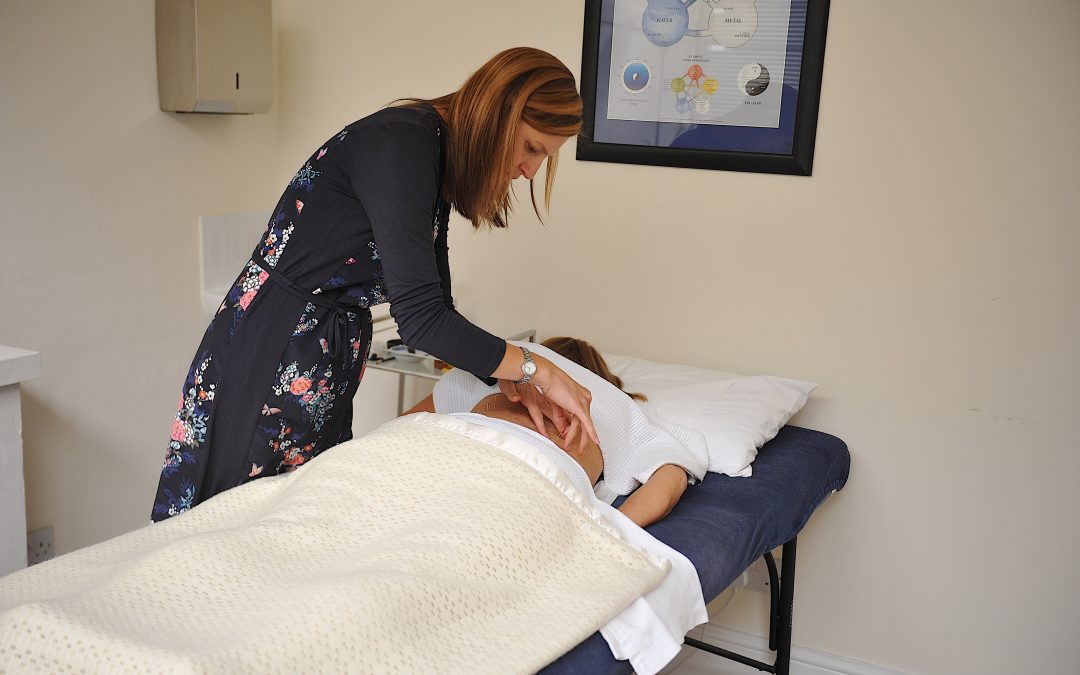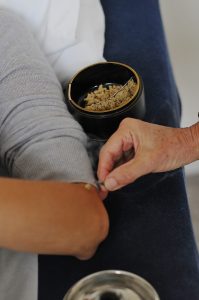Feeling laid low by a stinking cold, troublesome cough, or full-on flu? Acupuncture can help alleviate your symptoms and achieve a quicker recovery – find out how from our acupuncturist Tiffany Black

I am always delighted when patients keep their appointment – I often joke that acupuncturists must be one of the very few professionals who are positively happy to see their patients when they are in the throws of winter bugs. The reason why? Because I know I can help relieve their symptoms and support their immunity, so they can throw off the virus quickly and get better quickly.
How does acupuncture help with viruses?
As I wrote previously (INSERT LINK), acupuncture can do wonders for building up immunity and helping patients have a good winter. But, what is also rarely known is that acupuncture is incredibly beneficial for stimulating the body’s immunity when it has succumbed to a virus.
As we all know the common cold, also known as an upper respiratory tract infection, is characterised by a runny nose, nasal obstruction, headache, sneezing, cough, and fever. They are almost all exclusively viral infections. This means that conventional medications, such as analgesic agents and antihistamines, are only effective for alleviating symptoms. Antibiotics are of no benefit in such cases. In fact, little else in terms of conventional medicine can be given to help the body fight the virus.
Alleviating symptoms

How does acupuncture achieve this?
In Chinese Medical terms, it is the heat, cold and/or damp from the body that causes sore throats, temperatures and shivers, phlegm and mucus. So when we see patients with colds, coughs and flu, our treatment will revolve around clearing that, as well as helping the body to expel the virus.
So the acupuncture treatment could involve local points – for example, those suffering with sinusitis might have very fine needles inserted on the face to help drain the sinuses, or on the back of the neck to relieve headaches. Points are also inserted on other parts of the body such as the forearms and legs, which are known to stimulate the body’s natural immunity.
Research evidence
From a conventional medical perspective, research evidence has shown that acupuncture can heighten patients’ cellular immune function by affecting the levels of T lymphocytes[1](Rivas-Vilchis et al, 2009)- the cells responsible for the body’s ability to distinguish and react to foreign substances. Research from Japan has shown ‘a significantly positive benefit’ of acupuncture in preventing and curing the effects of the common cold (Kawakita et al, 2004).
Dealing with lingering after-effects
Regularly patients will come for acupuncture having got over the acute stage, but still struggling with lingering after-effects. For example, a lingering cough or still feeling bunged up, which is affecting their sleep and energy levels. Or patients may report feeling like they just haven’t got back to their normal self. This is also a gratifying time to treat with acupuncture, as there is much we can do to support the body in throwing off the last vestiges of the virus, restore their energy. This can also help to pick up their mood, which often takes a dip when energy levels have plummeted.
So next time you are suffering from all of this, remember acupuncture and I look forward to seeing your colds, coughs and flu soon!
References
- Rivas-Vilchis JF, Barrera-Escorcia E, Fregoso-Padilla M. (2009) ‘The effect of acupuncture on leukocyte levels in peripheral blood is modified by aspirin,’Proceedings of the Western Pharmacology Society, no 52, pp 61-62
- Kawakita K, Shichidou T, Inoue E, et al (2004) ‘Preventive and curative effects of acupuncture on the common cold: a multicentre randomized controlled trial in Japan’ (https://www.ncbi.nlm.nih.gov/pubmed/15649831),Complementary Therapies in Medicine, December,vol 12, no 4, pp181–88



